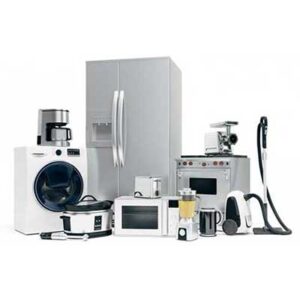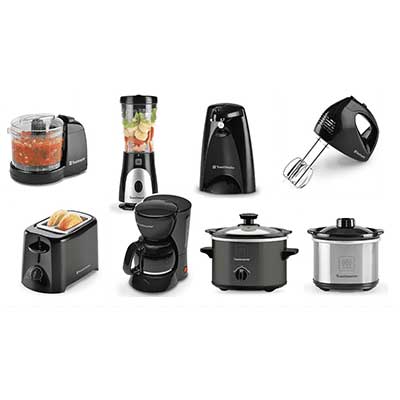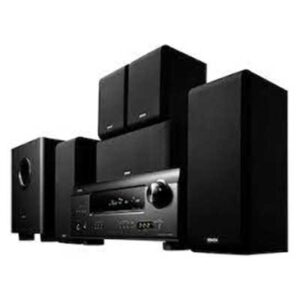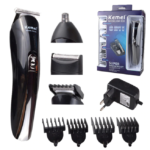The Benefits of Automatic Washing Machines’ Smart Features for Energy Efficiency Leave a comment
The globe has seen a rise in interest in sustainable living and environmental preservation in recent years. By adopting energy-efficient appliances, individuals may have a big beneficial influence in one key area. This essay will examine the clever elements that make automatic washing machines stand out in terms of energy efficiency and how they help create a future that is more environmentally friendly and sustainable.
Understanding Washing Machine Energy Efficiency
The capacity of washing machines to function at their best while using little power is referred to as their energy efficiency. Traditional washing machines often use a lot of water and energy, but technology breakthroughs have opened the way for automated washers with smart features that greatly lessen their environmental effect.
Automatic washing machines’ benefits
Convenience in saving time
The whole washing procedure is automated by automatic washing machine, which provides incomparable convenience. Users may load their clothes, choose the settings they like, and then leave the rest up to the machine. This not only saves time but also lessens the possibility of choosing the incorrect wash cycle due to human mistakes.
Conservation of Water and Detergent
Conserving water and detergent is one of the main advantages of energy-efficient washing machines. By ensuring that the machine uses the right quantity of water for each cycle, load-sensing technology minimises waste. These devices are furthermore designed to function well even with lower quantities of detergent, thus assisting in resource saving.
Ideal Cleaning Results
Modern cleaning processes that enable complete and effective cleaning of clothing are included in energy-efficient washing machines. To get rid of difficult stains, these machines combine soaking, tumbling, and high-pressure jets; the result is cleaner garments without using a lot of water.
Reduced Clothes Wear and Tear
The agitators in conventional washing machines may be rough on clothing, resulting in wear and tear over time. Your clothing will last longer since automatic washing machines use kinder methods to reduce fabric damage, such as rotating the drum.
Intelligent Features to Improve Energy Efficiency
Technology for Load Sensing
A cutting-edge feature of washing machines is load sensing technology, which enables them to gauge the amount of the load and alter water levels appropriately. Energy-efficient washing machines save waste by using the proper quantity of water, making them ecologically friendly.
Advanced Climate Management
It’s essential to keep the water at the proper temperature to clean effectively while using less electricity. Automatic washers have sophisticated temperature management features that heat the water to the proper degree while maximizing energy use.
Powerful Spin Cycles
Energy-efficient washing machines’ high-speed spin cycles eliminate extra water from clothing, shortening the time needed for drying. This function conserves electricity while also saving time.
Delayed Start Capabilities
Some automated washing machines enable consumers to arrange laundry cycles during off-peak times when power prices are cheaper thanks to delayed start capabilities. This clever function ensures that when required, garments are freshly laundered while also lowering energy expenditures.
Remote control and App Integration
Mobile applications may be linked to smart washing machines, giving consumers remote control and monitoring of the washing process. The ability to start, halt, or modify cycles from a smartphone further improves energy efficiency since users can react to changing demands immediately.
Benefits of Energy-Efficient Washing Machines for the Environment
The promotion of environmental sustainability is significantly aided by energy-efficient washing machines. These devices support international efforts to mitigate climate change by reducing their total carbon footprint and using less water and power.
Leading Manufacturers Supporting Energy Efficiency
Samsung EcoBubble
Samsung‘s EcoBubble technology creates bubbles that swiftly penetrate cloth for more thorough cleaning while ensuring effective cleaning with minimal energy use.
LG SmartThinQ
With LG‘s SmartThinQ series of washing machines, consumers can remotely manage and monitor their equipment, maximizing energy efficiency and personalizing wash cycles.
Bosch i-DOS
Bosch’s i-DOS technology uses the load size to automatically calculate the exact quantity of detergent needed, providing accurate detergent consumption and less waste.
Dispenser for Whirlpool Load & Go XL Plus
The Load & Go XL Plus Dispenser from Whirlpool maximizes efficiency and reduces the need for frequent refills by dispensing the appropriate quantity of detergent for each cycle.
Best Practises for Energy Efficiency
Proper Load Sizing
It’s essential to correctly fill the washing machine with clothing to maximize energy efficiency. The machine’s performance and energy use may be impacted by overloading or underloading it.
Whenever possible, use cold water
When at all feasible, wash your clothing in cold water to save energy, since a washing machine uses a large percentage of its energy to heat the water.
Consistent Upkeep
Regular maintenance, such as filter cleaning and blockage inspection, keeps the washing machine running at its best and maintains optimal energy efficiency.
Getting Past Obstacles with Energy-Efficient Washing Machines
Even while washing machines that use less energy have several advantages, some consumers may discover that certain models have longer wash cycles. However, this slight annoyance is often outweighed by the benefits of resource conservation and cost savings.
Most Important FAQs
Are washing machines that use less energy more expensive?
Some energy-efficient washing machines may initially cost a little more than conventional versions. However, it’s crucial to take into account the long-term savings in water and power costs. Energy-efficient equipment may considerably lower utility bills over time, making it a long-term investment that is cost-effective.
Can big loads be handled by energy-efficient washing machines?
Yes, today’s energy-efficient washers are built to handle a range of load sizes, even large loads. These machines can alter water levels and cleaning cycles depending on the size of the load thanks to cutting-edge technology like load detection, which ensures maximum performance without using an excessive amount of water.
Do clothing wash more slowly in energy-efficient washers?
Even while some energy-efficient washing machines may have longer wash cycles, the time difference is often negligible. The fundamental goal of manufacturers is to maintain effective cleaning performance while minimizing resource use. Furthermore, any modest increase in wash time is often offset by the time saved during drying, owing to effective spin cycles.
How much water can I save by using an energy-efficient washer?
Depending on use habits, load sizes, and the particular model, an energy-efficient washing machine may save you different amounts of water. When compared to conventional washers, these devices often save 20% to 50% more water. This results in considerable water savings and a diminished influence on the environment over time.
Can I use standard detergent in a washer that uses little energy?
In an energy-efficient washing machine, normal detergent is certainly acceptable. However, because these machines are designed to function well with less detergent, it’s crucial to use the right quantity. The proper quantity of detergent is even automatically dispensed for each load in certain energy-efficient machines, assuring excellent cleaning results and reducing waste.
Conclusion
Modern appliance design must now include energy efficiency, and automated washing machines have proved to be outstanding examples of environmentally friendly technology. These machines not only make laundry activities easier but also offer a substantial contribution to energy and water conservation efforts because of their smart features, load-detecting abilities, and sophisticated cleaning processes. In addition to reducing their utility costs, customers may actively contribute to the development of a greener and more sustainable future for future generations by purchasing an energy-efficient washing machine.












